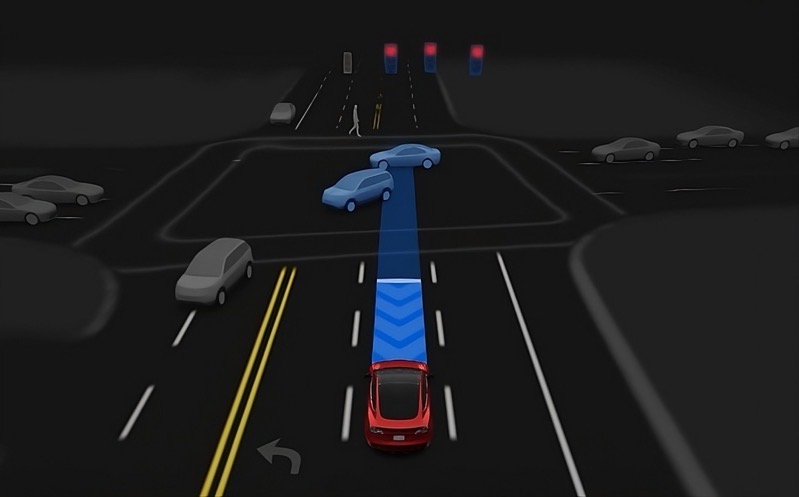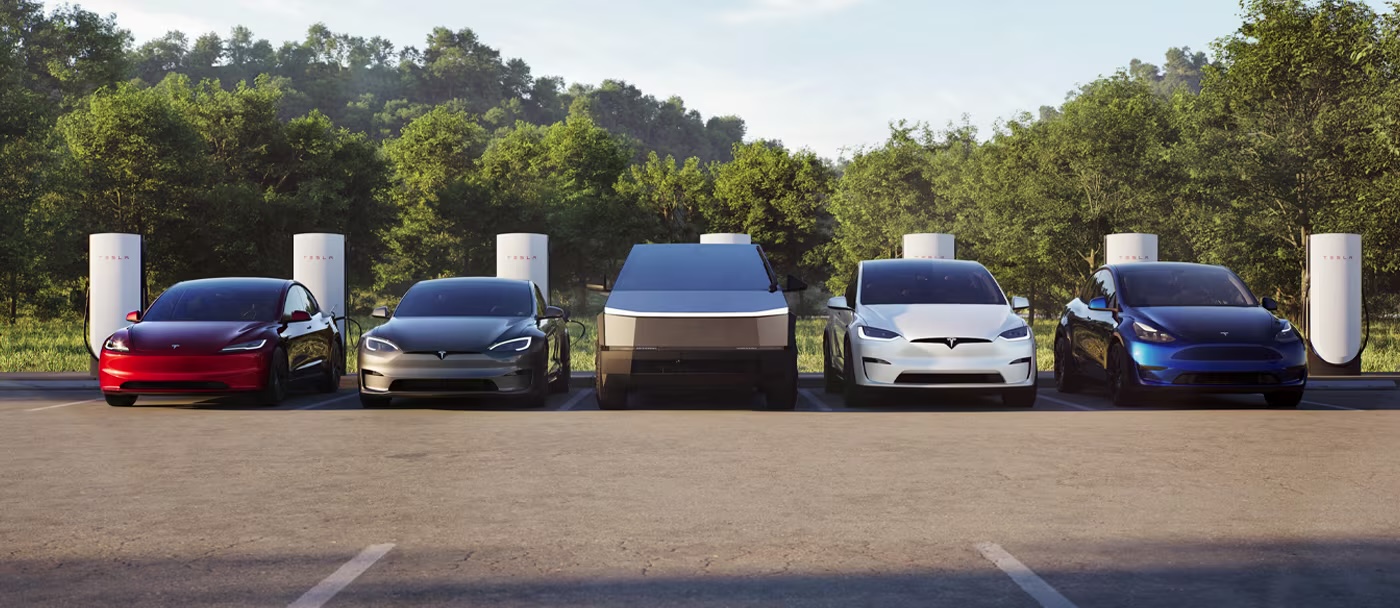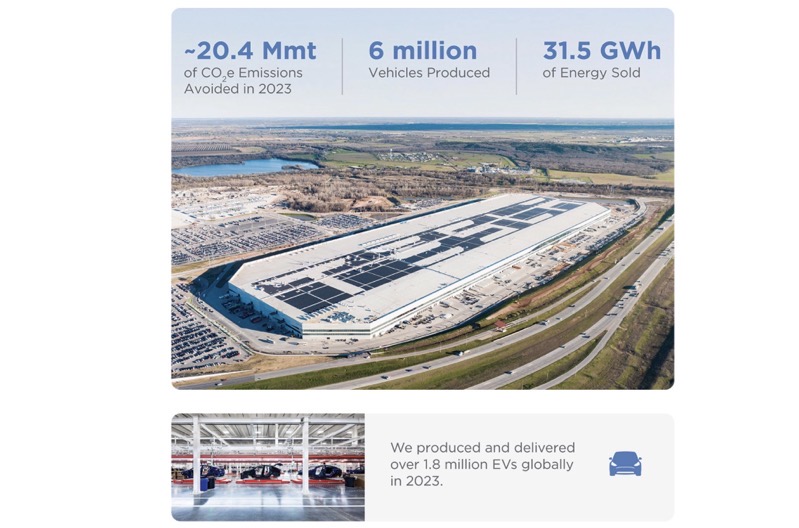
Tesla Poised for $1.8 Billion Windfall from Biden’s Climate Act: Report

Elon Musk’s Tesla is poised to receive an estimated $1.8 billion in production tax credits this year under the Inflation Reduction Act, President Joe Biden’s signature climate legislation. The sum exceeds the expected $480 million to be received by General Motors Co. and LG Energy Solution, while Ford Motor Co. will not benefit from the Act’s battery manufacturing credits until 2025, reports Bloomberg.
The advantageous position of Tesla is reflective of the law’s design, which is aimed to significantly incentivize American battery suppliers and automakers. Crucially, the law rewards those with large-scale domestic production. The more batteries and electric vehicles (EVs) an enterprise manufactures stateside, the greater its tax credits.
Tesla and its battery partner could potentially amass up to $41 billion in credits by the end of 2032, significantly surpassing Detroit’s key players. The automaker, which began operations at its Nevada battery plant nearly a decade ago in partnership with Panasonic Holdings Corp., leads the pack in the production of eligible products.
According to Tesla CFO Zachary Kirkhorn, the company is “pretty well-positioned” to leverage these incentives. Tesla plans to use the influx of funds from the tax credit to further decrease prices for consumers, continuing their strategy to boost sales volumes in the face of inflation and growing competition. The move is likely to force traditional automakers, such as GM and Ford, to also lower prices, presenting further profitability challenges for these companies as they transition to electrifying their product lineups.
Analysts predict the production tax credits offered by the Inflation Reduction Act could be the primary benefit for Tesla, despite initial focus on the law’s consumer EV tax credits. Given Tesla’s already dominant market share, the credits are poised to reinforce Tesla’s early advantage in the industry.
Tesla is currently expanding its own battery plant in Austin and has just started construction of a lithium refinery in Corpus Christi, Texas. Meanwhile, GM and Ford’s efforts to increase battery production domestically lag behind, with their output not expected to reach Tesla’s levels for years.
Recently, Tesla announced all trims of its Model 3 sedan now qualify for the full $7,500 tax credit. The company is also leveraging its Gigafactory in Shanghai, which is now producing Model 3 and Model Y vehicles to also export to Canada. This move allows Tesla to save U.S. battery production for the American market, thusly qualifying for the Biden tax credits.
Despite the growing competition, Musk plans to utilize the benefits from the law to further lower Tesla’s prices, a move aimed at improving affordability. These cuts, backed by significant tax credits, could reduce Tesla’s average selling price by $125 per unit every quarter for the next two years, according to estimates by Piper Sandler analyst Alexander Potter, without negatively affecting profit margins.
Despite potential political challenges to the Inflation Reduction Act and uncertainty surrounding future tax credits, Tesla is poised to use the benefits it receives to its advantage. The extensive credits give Tesla considerable leeway to further stimulate consumer demand, potentially leading to a steady reduction in the company’s sticker prices, courtesy of government backing.

